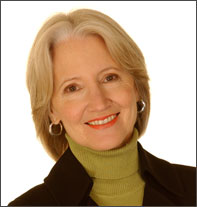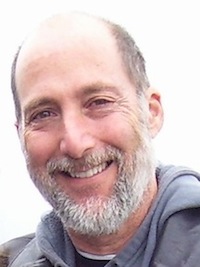Thomas McNamee: The Inner Life of Cats
November 12, 2017 by David
Filed under Non-Fiction, WritersCast
 The Inner Life of Cats: The Science and Secrets of Our Mysterious Feline Companions – Thomas McNamee – Hachette Books – Hardcover – 9780316262873 – 288 pages – $27.00 – ebook versions available at lower prices – March 28, 2017
The Inner Life of Cats: The Science and Secrets of Our Mysterious Feline Companions – Thomas McNamee – Hachette Books – Hardcover – 9780316262873 – 288 pages – $27.00 – ebook versions available at lower prices – March 28, 2017
What a fun read! Thomas McNamee’s story begins with the story of finding his own cat, Augusta, and that story becomes the framework for a comprehensive understanding of how cats develop both physiologically and psychologically, and of course how their owners do as well.
McNamee recounts the evolution of cats and much more as he tells the story of his own cat’s adventures. He talks to all kinds of experts, animals behaviorists, activists and researchers to help his readers understand these strange and different animals who have lived with and among humans for so long. His book is well grounded in every way.
The author has strong opinions about these animals. He is clearly someone who loves cats and wants to improve the way other cat lovers live with and treat their pets. He aims for them to have happier and better relationships with them, and I suspect that reading this book will in fact help make that happen for them.
While I am decidedly not a cat person, Tom McNamee is such a fine writer and storyteller, I found this book impossible to put down. I am guessing true cat loving humans will as well.
McNamee is the author of several successful books, including The Grizzly Bear; Nature First: Keeping Our Wild Places and Wild Creatures Wild; a novel, A Story of Deep Delight; The Return of the Wolf to Yellowstone; Alice Waters and Chez Panisse: The Romantic, Impractical, Often Eccentric, Ultimately Brilliant Making of a Food Revolution; The Man Who Changed the Way We Eat: Craig Claiborne and the American Food Renaissance; and most recently, The Killing of the Wolf Number Ten.
McNamee also wrote the PBS documentary Alexander Calder, which won a Peabody Award and an Emmy. In 2016, he was awarded a Guggenheim Fellowship to work on The Inner Life of Cats.
He was a board member and chairman of the Greater Yellowstone Coalition. He has also served as a board member of Rare Conservation and the Center for Urban Education about Sustainable Agriculture. After two decades in New York City, he then lived on a cattle ranch in Montana for eight years. He now lives and writes in San Francisco.
Thomas McNamee’s website is here.
“The Inner Life of Cats is filled with shining prose, moments of sheer cat joy–and intimate, careful scientific observation. Thomas McNamee’s naturalist’s eye, combined with his humor and heart, bring the always wild, yet domesticated cat into delightful, insightful focus.”
―Cat Warren, New York Times bestselling author of What the Dog Knows
Talking with Tom about this book was a true pleasure. Full disclosure: I published his excellent book, The Killing of Wolf Number Ten (a great book – it is the story of the return of wolves to Yellowstone National Park).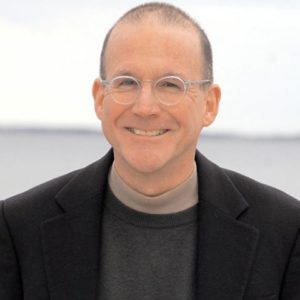
Podcast: Play in new window | Download
Elizabeth Farnsworth: A Train through Time – A Life, Real and Imagined
October 15, 2017 by David
Filed under Fiction, WritersCast
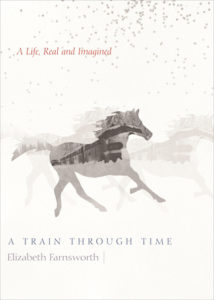 A Train through Time: A Life, Real and Imagined – Elizabeth Farnsworth – Counterpoint – Hardcover – $25.00 – 160 pages – February 14, 2017 – ebook versions available at lower prices
A Train through Time: A Life, Real and Imagined – Elizabeth Farnsworth – Counterpoint – Hardcover – $25.00 – 160 pages – February 14, 2017 – ebook versions available at lower prices
“I began this book with a sense of discovery and finished it in a state of exaltation. Along the way it broke my heart. It has been a long time since I read a book so moving, plain spoken and beautiful. The instant I finished it, I went back to the beginning and started in again.” ―Michael Chabon
This slim – and gorgeously produced – memoir is one of the most striking and memorable books I have read recently. I have to simply echo what Chabon said about it – Elizabeth Farnsworth has written something very special, a book that does not fit easily into our conception of book categories – and that is a good thing. Her book is an exploration of childhood memories of loss and of family life that woven together with more recent stories of her work as a journalist and documentary film maker, are built into a fictional structure. The book forms an almost dream state to carry the author (and the reader) through her story.
Farnsworth interrogates her own understanding of events, real and imagined, to understand the arc of her life. It is a truly magical journey of self and psyche.
A Train through Time is illustrated with the remarkable photo art of Mark Serr, whose works contribute to the ethos and sensibility of the book, as well as providing us with a beautiful and dreamy cover image.
Of course it helps that Farnsworth is a fine writer and a terrific storyteller. I was deeply moved by this book, and really enjoyed having the opportunity to speak with the Ms. Farnsworth about her story, about trains, journeys, and life in general. As an experienced television personality, she is very comfortable in recorded conversation and we had a great talk together, which I hope you will enjoy.
Elizabeth Farnsworth is a filmmaker and a foreign correspondent. For many years, she was the chief correspondent on the PBS NewsHour hosted by Jim Lehrer. During her career, she traveled widely to report on stories in Cambodia, Vietnam, Chile, Haiti, Iraq, and Iran and many other places. Farnsworth grew up in Topeka, Kansas, has a B.A. from Middlebury College, an M.A. in history from Stanford University and now lives in Berkeley, California.
Her documentaries include The Judge and the General (2008) and The Gospel and Guatemala (1983).
You can learn more about the author and A Train Through Time at the Counterpoint website here.
Podcast: Play in new window | Download
Nancy MacLean: Democracy in Chains: The Deep History of the Radical Right’s Stealth Plan for America
September 26, 2017 by David
Filed under Non-Fiction, WritersCast
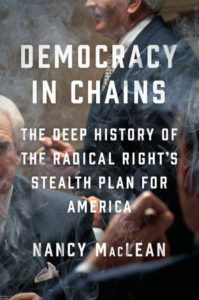 Democracy in Chains: The Deep History of the Radical Right’s Stealth Plan for America – Nancy MacLean – Viking – Hardcover – 9781101980965 – $28.00 – 368 pages – June 13, 2017
Democracy in Chains: The Deep History of the Radical Right’s Stealth Plan for America – Nancy MacLean – Viking – Hardcover – 9781101980965 – $28.00 – 368 pages – June 13, 2017
I will say this clearly and forthrightly: whatever your political opinions or positions, you must read this book. It shines an important light on the history of what has now become the most potent force in modern American politics. This book reveals in detail how the Koch brothers and other shadowy billionaires’ political philosophy has been weaponized in an ongoing war against democratic beliefs and institutions.
Professor MacLean came across this historical record more or less by accident, while she was researching the Nobel Prize-winning political economist, James McGill Buchanan, the principal architect of the ideas and institutions the Koch brothers and their allies have harnessed to radically alter the American political landscape in their distorted image of “economic libertarianism.” This philosophy fully recognizes that anti-democratic efforts are necessary to secure the wealth of the few against the “predations” of the democratic majority, and all their work for the last forty years or more has been aimed toward controlling and weakening democratic institutions. They have been remarkably successful in their efforts.
There is so much to learn in this book, yet still so much more for us to uncover, and ultimately then, so much that needs to be done by those who feel the need to defend democratic liberalism and American institutions. It is remarkable to learn that this effort is essentially part of a longstanding effort to reach far back into our history to undo FDR’s democratic reforms, as well as those of JFK, LBJ, and the civil rights movement. And that Charles Koch is so ironically a follower of the principles of that old Bolshevik, V.I. Lenin.
We learn here that Koch and his cronies have built a secret cadre of true believers who want to do what their hero Buchanan did in Pinochet’s Chile, which was to use the institutions of government to control and contain democracy. They have come a long way toward succeeding in our own country, as most citizens are completely unaware of what they are doing, especially with their takeover of the judiciary. And in Trump’s America, they are free to have their way with us.
One way you can tell Nancy MacLean has made an impact with her research is the level and sheer ferocity of mostly personal attacks from the right against her. Those who post in opposition seem to have neither read the book, nor care to think about the author’s actual work. One of the tools used by the Koch-financed opponents of democracy is the personal attack and what they call the “increased transaction cost” for anyone who opposes their views. Since they usually cannot win intellectual or even political arguments, they prefer to disparage and attack those who dare stand against them on other grounds than reason.
I urge listeners to read this book, think about what MacLean has uncovered, and then, if you agree with what she says, use what you learn from this book to stand up for freedom and democracy against oligarchy.
“This sixty-year campaign to make libertarianism mainstream and eventually take the government itself is at the heart of Democracy in Chains. . . . [MacLean] takes the time to meticulously trace how we got here. . . . If you’re worried about what all this means for America’s future, you should be. . . . And if someone you know isn’t convinced, you have just the book to hand them.”
—NPR
“It’s the missing chapter: a key to understanding the politics of the past half century. To read Nancy MacLean’s new book, Democracy in Chains: The Deep History of the Radical Right’s Stealth Plan for America, is to see what was previously invisible.”
—George Monbiot, The Guardian
“[A] riveting, unsettling account of ‘Tennessee country boy’ James McGill Buchanan, key architect of today’s radical right.”
—O, The Oprah Magazine
Nancy MacLean is also the author of Behind the Mask of Chivalry (a New York Times “noteworthy” book of the year) and Freedom is Not Enough. She is currently the William Chafe Professor of History and Public Policy at Duke University, and lives in Durham, North Carolina.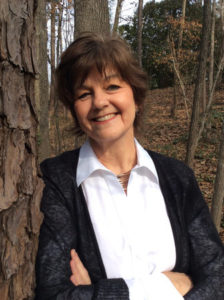
Podcast: Play in new window | Download
Madeleine Blais: To the New Owners-A Martha’s Vineyard Memoir
August 20, 2017 by David
Filed under Non-Fiction, WritersCast
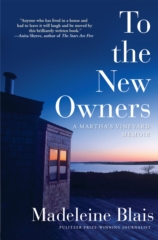 To the New Owners: A Martha’s Vineyard Memoir – Madeleine Blais – Atlantic Monthly Press – Hardcover – 978-0-8021-2657-3 – $26.00 – 272 pages – July 2017 (ebook versions available at lower prices)
To the New Owners: A Martha’s Vineyard Memoir – Madeleine Blais – Atlantic Monthly Press – Hardcover – 978-0-8021-2657-3 – $26.00 – 272 pages – July 2017 (ebook versions available at lower prices)
Madeleine Blais is a truly wonderful writer – she began her writing career as a journalist, now teaches journalism at the University of Massachusetts, and won a Pulitzer Prize for her 1994 book In These Girls Hope is a Muscle. But I had never really read her work before my friend George Gibson, knowing I had spent time on Martha’s Vineyard, recommended this book to me. Reading this book was a great experience for me, one of those times when I found myself reading sections aloud to my wife, who spent most of her life going to Martha’s Vineyard each summer. This book is full of beautiful passages about place, family, and the magical experiences that summer vacations engender for so many of us.
Back in the 1970s, Madeleine Blais married into the Katzenbach family, and with them, their somewhat rustic vacation house on Martha’s Vineyard. Located on an old one-lane dirt road, the house was more a shack, without electricity or running water. But for spending old fashioned quiet vacations decompressing from daily life, the house was ideal, and very representative of the kinds of places that were then common in traditional east coast vacation spots.
The house was near Tisbury Great Pond, facing the ocean and open to the sky, and over the years, the old shack was rebuilt and modernized, but the more or less rustic lifestyle of the family and their visitors remained a constant. There was no heat, no TV, and no telephone, and typically terrible cell service. But as Blais documents, the days were marked by time spent on the beach and on the Vineyard’s beautiful waters, meals prepared and enjoyed with extended family and their many visiting friends, all logged in a series of notebooks made by the family over the decades – almost half a century of family stories to be preserved and loved.
But life is full of changes and with the passing of the original family owners, in 2014, the house was sold. In To the New Owners, Madeleine Blais tells some of these stories of the house and her family’s life within it, and stories of the Vineyard, including some of its recent history, and some of the people whose visits have now made it so well known.
But this book is really about the places that matter in our lives, the power of place to ground and center our lives and the importance of memory and stories to help us understand who we are.
While this book is a memoir about this one distinctive east coast island, it will resonate for the many of us who have experienced well-loved places that have changed over time. Change is the constant feature of modern life, and family summer places like this one may be disappearing forever. New generations will find their own ways to understand and appreciate the places around which they build their histories. Those of us who have had the pleasure of experiencing Martha’s Vineyard will likely love this book as much as we love the island itself, and remind us of our own stories and the memories that keep us whole.
Madeleine Blais was a reporter for the Miami Herald for years before joining the faculty of the School of Journalism at the University of Massachusetts. She is the author of In These Girls, Hope Is a Muscle, Uphill Walkers, and The Heart Is an Instrument, a collection of her journalism. She lives in Amherst, Massachusetts.
Aside from being a fine writer, Madeleine also tells great stories, and gave us a wonderful interview. Special thanks to George Gibson for recommending this excellent book to me.
“For anyone who has ever been curious about life on the Vineyard, or fantasized about settling in, Blais offers a diverting portrait . . . Blais has stitched together [the memoir] from the writings and stories of others, as well as her own wistful, often wry observations . . . Throughout, Blais exhibits a veteran reporter’s instinct for even-handedness.”―Boston Globe
Podcast: Play in new window | Download
Jane Ziegelman and Andrew Coe: A Square Meal: A Culinary History of the Great Depression
July 17, 2017 by David
Filed under Non-Fiction, WritersCast
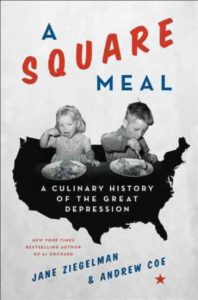 A Square Meal: A Culinary History of the Great Depression – Jane Ziegelman and Andrew Coe – HarperCollins – paperback now available – 9780062216427 – 336 pages – $15.99 – ebook versions available at lower prices.
A Square Meal: A Culinary History of the Great Depression – Jane Ziegelman and Andrew Coe – HarperCollins – paperback now available – 9780062216427 – 336 pages – $15.99 – ebook versions available at lower prices.
First, let me say that this is one of the most interesting, readable and thought-provoking works of American history I have read in a long time. It’s interesting to think about how two writers can work together to create a consistent and compelling authorial voice – Andrew and Jane have done that brilliantly. One must assume they have a very special marriage that enables them to both collaborate and live happily together.
If you are interested in food and how the American palate has changed over time, this book will certainly have much to offer. But I think the story here is broader than it may first appear. It’s not just a “culinary history” but a comprehensive social history of one of the most important periods of American life told through the issues surrounding food and nutrition in a challenging time.
Yes, it is “an in-depth exploration of the greatest food crisis the nation has ever faced – and how it transformed America’s culinary culture,” but I think the larger story is that this book uses food as the lens to through which to view how Americans lived during our greatest economic and cultural crisis.
History writing that brings the past to life and engages us in the human dimensions of the big moments of the past is real storytelling. This kind of writing helps us understand and sympathize with the people who came before us. It makes us better able to deal with our own crises, of which there are indeed many.
So this book is important whether food is “your thing” or not. I’d recommend reading it no matter your specific interests, just because it will make you think, will make you care, and will help you to feel that the past really is always prologue. It was a great pleasure to have the opportunity to talk in person with Jane and Andrew about A Square Meal.
Jane Ziegelman is the director of the Tenement Museum’s culinary center and is founder and director of Kids Cook!, a multiethnic cooking program for children. Her writing on food has appeared in numerous publications, and she is the coauthor of Foie Gras: A Passion.
Andrew Coe is a writer and independent scholar specializing in culinary history, and the author of Chop Suey: A Cultural History of Chinese Food in the United States, which was a finalist for a James Beard Award. He appeared in the documentaries The Search for General Tso and Eat: The Story of Food. Jane and Andrew live in Brooklyn, New York. And recently, A Square Meal was announced the winner of the 2017 James Beard Award for best nonfiction book of the year.
NPR’s Fresh Air did a wonderful interview (called “Creamed, Canned and Frozen”) with Jane and Andy about this book in August, 2016. And I interviewed Andy about his book, Chop Suey for Writerscast a few year ago.
Photo of the authors by Sasha Maslov for The New York Times.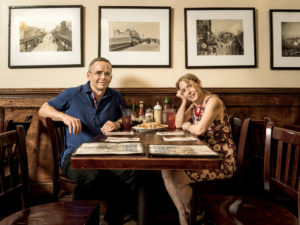
Podcast: Play in new window | Download
Elizabeth Hand: Fire
May 11, 2017 by David
Filed under Fiction, WritersCast
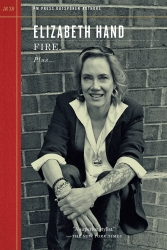 Fire (Outspoken Authors Series) – Elizabeth Hand – PM Press – paperback – 978-1-629632-34-6 – 128 pages – paperback – $12.98 (ebook version available at $9.99)
Fire (Outspoken Authors Series) – Elizabeth Hand – PM Press – paperback – 978-1-629632-34-6 – 128 pages – paperback – $12.98 (ebook version available at $9.99)
Over the years, I had heard of Elizabeth Hand, and knew she was a writer to be reckoned with, but I had never read her science fiction and mystery novels or stories. She was just not on my radar. Now, having read this fantastic short collection of some of her fiction and nonfiction, I have belatedly begun to understand the scope of her work and enjoyed the opportunity to experience her powerful writing.
Fire is a short book that packs a big punch. Maybe it is the ideal introduction to Hand’s work, and maybe that was PM Press’ intention in publishing it. The title story was written especially for this book. It is a powerful post-apocalyptic short story set in a world – our own – approaching global conflagration.
In a useful essay, “The Woman Men Couldn’t See,” Hand examines the work and life of Alice Sheldon, who wrote some stunning science fiction novels under the pseudonym “James Tiptree, Jr.” in order to conceal identity from both readers and her bosses at the CIA. In another nonfiction contribution called “Beyond Belief,” Hand talks about how she went from being a troubled teenager to a serious writer. Other pieces include some of her short fiction, a bibliography of her writing, and PM’s own interview with the author (which I tried to not replicate in my own conversation with Elizabeth).
After seeing Patti Smith perform, Hand became involved in the nascent punk scenes in DC and New York. She worked at the Smithsonian’s National Air and Space Museum in Washington, D.C. Hand is the author of a number of novels and three collections of stories and her work has been recognized by the Nebula, World Fantasy, Mythopoeic, Tiptree, and International Horror Guild Awards. Her novels have been chosen as notable books by both the New York Times and the Washington Post. Hand is a regular contributor to the Washington Post Book World and the Magazine of Fantasy and Science Fiction, and lives with her family on the coast of Maine.
Talking to Elizabeth Hand was great fun for me. She is as good a conversationalist as she is a writer, and has alot to say that I think listeners will find interesting. I hope this interview with Elizabeth Hand will be a useful and meaningful contribution to our literary landscape. Now that I have become familiar with her work I intend to add Elizabeth Hand’s fiction to my ever expanding list of “must-read” books. Thanks to PM Press for introducing me to this wonderful writer’s work.
Podcast: Play in new window | Download
Marc Nieson: Schoolhouse: Lessons on Love & Landscape
January 29, 2017 by David
Filed under Non-Fiction, WritersCast
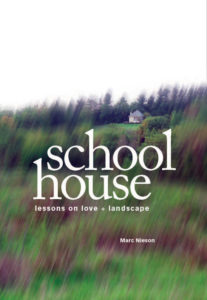 Schoolhouse: Lessons on Love & Landscape – Marc Nieson – Ice Cube Press – paperback – 9781888160925 – 272 pages – $19.95
Schoolhouse: Lessons on Love & Landscape – Marc Nieson – Ice Cube Press – paperback – 9781888160925 – 272 pages – $19.95
Memoirs are most often stories of self discovery. To work for readers, they have to engage us indirectly – we have to buy into the narrator’s central problem the story will show us being solved. Marc Nieson’s memoir is about a period in his life when he was confused about love and self-identity. He left his home and long term lover in New York City to attend the famed Writer’s Workshop at the University of Iowa, and ended up living in a former one room schoolhouse on 500 acres of beautiful Iowa landscape.
Escaping the travails of modern life, and living in the woods, the comparisons to Walden cannot help being made. City-bred Nieson learns how to observe the natural world, and in so doing, learns how to understand himself at the same time. Nieson keeps us involved throughout his narrative, and we come to the end of the story fully engaged in his personal adventure.
The book is structured like a schoolbook, each chapter being named after a school subject (i.e. Geography, History, Social Studies, What I Did On My Summer Vacation), which gives the book a certain charm, and while it’s a conceit, this organization helps keep the narrative moving forward. It’s a fully transformational story, even if you have never experienced the woods or the Iowa landscape.
As Nieson writes: “Here on a quiet Iowa hillside, I was hoping … to both learn and unlearn who I was. To try living not only alone and apart, but a more consciously observed life — both inside and out.” I think he achieved what he was hoping to do in Iowa.
“Those of us who have lived in old one-room schoolhouses understand the solitude, solace, and proximity to nature that they provide. During his year living in Union #9, Marc Nieson embraced these opportunities for inner growth. His new memoir—a must read—traces the story of his journey of discovery along the trail through the woods surrounding his house and along the path of human relationships. Read Schoolhouse, and you will open the door to the mind of an engaging voice, a probing, reflective writer who delights the reader with his lyrical prose on every page.”
—Mary Swander, author, Out of this World: A Woman’s Life Among the Amish
Marc Nieson has degrees from both the Iowa Writers’ Workshop and NYU Film School. His background includes children’s theatre, cattle chores, and a season with a one-ring circus. He’s been awarded a Raymond Carver Short Story award and recent fiction appears in Everywherestories: Short Fiction From A Small Planet (Press 53), Museum of Americana, and Tahoma Literary Review. He is also a screenwriter, whose credits include Speed of Life, The Dream Catcher, and Bottomland. He teaches at Chatham University in Pittsburgh, and is working on a new novel, Houdini’s Heirs.
In this interview, Marc and I talked in detail about this excellent book and his work as a writer and teacher. Special kudos to Ice Cube Press for publishing this memoir.
Author website here.
Ice Cube Press website here.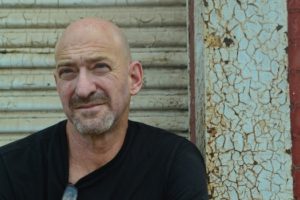
Podcast: Play in new window | Download
Tom Shroder: The Most Famous Writer Who Ever Lived
January 20, 2017 by David
Filed under Non-Fiction, WritersCast
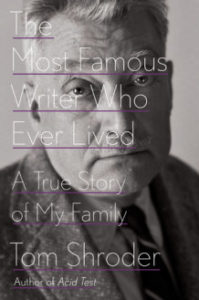 The Most Famous Writer Who Ever Lived: A True Story of My Family – Tom Shroder – Blue Rider Press – hardcover – 9780399174599 – 416 pages – $28 – published October 4, 2016 (ebook editions available at lower prices)
The Most Famous Writer Who Ever Lived: A True Story of My Family – Tom Shroder – Blue Rider Press – hardcover – 9780399174599 – 416 pages – $28 – published October 4, 2016 (ebook editions available at lower prices)
Tom Shroder is an excellent writer and an experienced editor who has had a long career as a journalist, as well as having also written some really interesting books. As it turns out, he is the grandson of the once-bestselling author, MacKinlay Kantor, who won the Pulitzer Prize in 1956 for his sprawling historical novel about the Civil War, Andersonville. I expect that a number of my listeners will have read that book, and many will quite possibly remember MacKinlay Kantor as someone who was an extremely well known and popular author in the fifties and sixties.
Like so many of us, Shroder grew up mostly taking his grandfather for granted, and while he was close with both his grandfather and grandmother, Tom did not really know very much about their actual lives before he was born, when their lives were very different. Their daughter, his mother, was also a writer as Tom was growing up, but he did not want to identify with the literary milieu of his youth. It was only later in his life that he was spurred to learn more about his family history, and to begin to understand himself within any kind of a personal literary context.
This book recounts the thoroughly compelling MacKinlay Kantor’s very colorful and intentional life as a writer, as well as weaving together Shroder’s own story, which is one of becoming a writer without perhaps intending to do so. It works amazingly well, and even if you have never read Andersonville or any of the other many books Kantor wrote during his long and checkered career, this particular book is likely to captivate you. It is full of wonderful stories and empathetic emotional connections.
Shroder’s journey to understanding who his grandfather was turns out to be almost as epic as Kantor’s actual life, full of twists and turns, discoveries and surprises. I read Andersonville long ago, and remember being fully engaged by its epic scope and historical detail. But I had forgotten that Kantor was also the ghost writer for Curtis Lemay later in his life, when things were not going so well for him. His was a complicated and very American 20th century story, story, and Shroder tells it exceptionally well.
Tom Shroder has been an award-winning journalist, writer and editor for nearly 40 years. His books include Acid Test: LSD, Ecstasy and the Power to Heal (2014), a mind-altering account of the resurgent research into the medical use of psychedelic drugs; Fire on the Horizon: the Untold Story of the Gulf Oil Disaster (2011) (co-author); and Old Souls: Compelling Evidence From Children Who Remember Past Lives (1999), a study of the border between science and mysticism.
He was the editor of The Washington Post Magazine between 2001 and 2009, where he oversaw Gene Weingarten’s two Pulitzer Prize-winning feature stories, “Fiddler in the Subway” and “Fatal Distraction.”
Shroder’s The Hunt for Bin Laden (2011) was based on 15 years of reporting by The Washington Post. Shroder is also known for co-creating the Tropic Hunt, a mass-participation puzzle which has become The Washington Post Hunt in Washington, D.C.
Shroder was born in New York City in 1954.
You can visit Shroder’s author website here.
“Fascinating…As Shroder vividly tells the story of this larger-than-life writer who was a generous and often doting grandfather, he contemplates the fleeting nature of fame….a biographical gold mine and an object lesson in the ultimate fading away of the best-selling, prize-winning success many writers dream about.”
—Susan Cheever, The Washington Post
This book was a pleasure to read, and the conversation with Tom Shroder was a lot of fun for me as well. He made this interview extremely easy for me to conduct.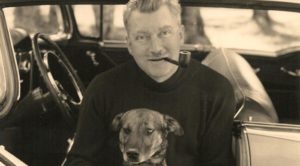
Podcast: Play in new window | Download
David Wilk interviews publisher and poet Merrill Leffler
December 18, 2016 by David
Filed under Publishing History, PublishingTalks
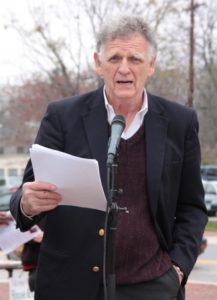 Publishing Talks began as a series of conversations with book industry professionals and others involved in media and technology about the future of publishing, books, and culture. I’ve talked with many people about how publishing is evolving as our culture is affected by technology within the larger context of changes in civilization and economics.
Publishing Talks began as a series of conversations with book industry professionals and others involved in media and technology about the future of publishing, books, and culture. I’ve talked with many people about how publishing is evolving as our culture is affected by technology within the larger context of changes in civilization and economics.
I’ve broadened the series to include conversations with editors and publishers who have been innovators and leaders in independent publishing both in the past and into the present. Through these talks, I hope to continue to explore the ebb and flow of writing, books, and publishing in all forms and formats, as change continues to affect our lives.
For the past several years, I’ve been talking to editors and publishers of independent presses about their work, including a number of important literary publishers. Most recently, I had the pleasure of speaking with Merrill Leffler, the co-founder and publisher of Dryad Press. Leffler and his publishing program have been fixtures in the Washington, D.C. area poetry and indie press scene, but are by no means local in interests or scope of work.
Merrill and his friend Neil Lehrman published the first issue of Dryad, a small poetry magazine, in 1968. Their journal, like many others in that era, began as a quarterly. After the first several issues, their publication dates became more variable, and in roughly 1975, Dryad evolved into Dryad Press — two issues of the magazine were sent to subscribers as books. In a further evolution over the years Dryad expanded from publishing poetry to include fiction and non-fiction as well.
With almost a half century of self-taught publishing behind him, Merrill Leffler, a writer and poet of some note himself, has much to talk about. In this conversation, we talked about the history of Dryad and its evolution as part of the modern era of independent publishing, as well as poetry, fiction, and much more.
Compared to many other writers and independent press publishers, Leffler has an unusual and singular background. He was trained as a physicist, worked for NASA’s rocket program and was the senior science writer at the University of Maryland Sea Grant Program, where he focused on research involving the biology of the Chesapeake Bay. In addition, for a number of years he taught English at the US Naval Academy in Annapolis.
Merrill Leffler has also published three collections of his poetry, most recently a collection called Mark the Music. There’s a great article about him (“Can a poet lose weight by snacking on poems?”) that mentions his role as the Poet Laureate of Takoma Park, Maryland here. And an excellent piece about Dryad and its history by Leffler at a DC area literary website called Splendid Wake.
Leffler is warm, generous, and was a pleasure for me to speak with. I hope you enjoy this interview as much as I did! 
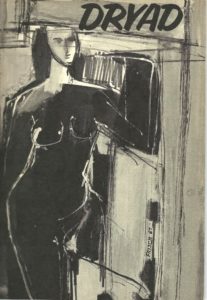
Podcast: Play in new window | Download
Charles Kaiser: The Cost of Courage
December 12, 2016 by David
Filed under Non-Fiction, WritersCast
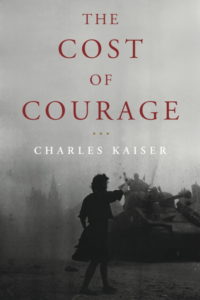 The Cost of Courage – Other Press – Hardcover – 288 pages – 9781590516140 – $26.95 (ebook versions available at lower prices)
The Cost of Courage – Other Press – Hardcover – 288 pages – 9781590516140 – $26.95 (ebook versions available at lower prices)
I read this beautifully written book about one family’s experience of World War II in France just before our recent election. At that time, I was not expecting to have to think about it in the context of our own political situation. Even without understanding that the incredible courage of his subjects may be instructive to us today, this book is about an incredible story of bravery and sacrifice. As of this moment, The Cost of Courage must be read in a new context.
All of us need to consider the lessons learned from the experience of everyday people in horrible circumstances like those of the French in occupied France. These were times of brutal repression and daily violence for individuals who constantly made momentous moral decisions with life and death consequences.
The Cost of Courage recounts the true story of the three youngest children of a bourgeois Catholic family, who worked heroically in the French Resistance during the Nazi occupation of France. Charles Kaiser was lucky enough to know this family from the time he was a small boy, because his uncle was billeted with them after the liberation of Paris by Allied forces.
In 1943, André Boulloche was working underground as General Charles de Gaulle’s military representative in Paris, coordinating Resistance activities in northern France. Unfortunately, he was betrayed by one of his associates, arrested and taken prisoner by the Gestapo. His two younger sisters continued to fight against the Germans until Paris was freed in 1944. André Boulloche managed to survive his time in three concentration camps through sheer force of will.
The elderly Boulloche parents and the oldest brother were also arrested when the Gestapo tried to capture the two sisters. Tragically, these three were on the last train the Germans ran from Paris to Germany before the Allies liberated the city, and they died soon after in Nazi concentration camps.
After the war, the Boulloches remained silent about their terrible wartime. Ultimately, Charles was able to convince the last surviving sister to finally tell her family’s incredible story. The Boulloche story is moving and powerful, and we are fortunate it could be told to us by this fine and sensitive writer.
It was a true pleasure for me to be able have this opportunity to talk to Charles about his book and his experience of writing it. Charles and I were in high school together, but have had very little contact since then, and while I have followed his outstanding career as a journalist and author, we have not talked often over these many years. I am gratified to have read this book, and have been inspired by its story. I urge my listeners to read The Cost of Courage, as we are ourselves now live through times that will challenge our own willingness to pay the true cost of courage.
Charles Kaiser started writing for The New York Times while still an undergraduate at Columbia. He spent five years at the Times as a reporter, and after that was the press critic at Newsweek for two years. After writing about media and publishing for the Wall Street Journal, he wrote his first book, 1968 in America, published in 1988. His highly praised book, The Gay Metropolis was published in 1997.
His writing has appeared in New York, the New York Observer, Vanity Fair, the Washington Post, the Los Angeles Times and Manhattan,Inc. among many other publications.
Kaiser was a founder and former president of the New York chapter of the National Lesbian and Gay Journalists Association. He has taught journalism at Columbia and Princeton, where he was the Ferris Professor of Journalism. To learn more about his work, visit his website here.
“In this poignant personal tale, Kaiser explores the emotions and breaks through the silences that haunted an amazing family after their experiences in the French resistance to Nazi occupation. The result is a compelling and heart-wrenching book about courage, love, and the complex shadings of heroism.”
—Walter Isaacson
Podcast: Play in new window | Download

